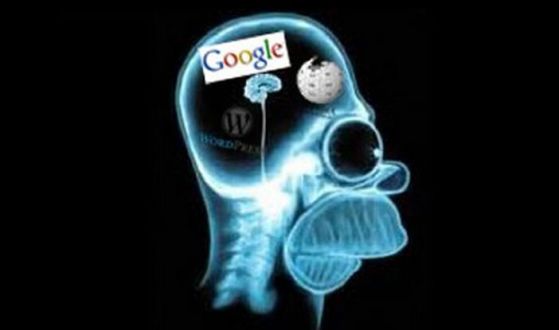A little spoiler: if you think that in this article I am going to talk about 'gadgets and the Internet are all the creations of the devil, that you have to give up everything and go live in the forest (or at least the village)', then you are wrong. The main idea of this article is this: if you use the modern achievements of the IT industry wisely, then you will be able to memorize everything that you need further.

Let's imagine for a moment that you need to search the Internet for the meaning and use of some fairly common expression (for example, 'The Fourth Wall'), the meaning of which you have forgotten. Googling literally for a few seconds, you will find out the necessary information and calm down, thinking that this information is firmly deposited in your memory – which, of course, is not the case.

Drawing an analogy with books, we can say that a similar situation occurs when, instead of memorizing the page number on which you left off, the next time you use the table of contents to search for it, or even leave a bookmark initially. In principle, this approach to memorizing certain insignificant facts does not greatly affect the flexibility of human memory, however, neuroscientists are concerned about another issue: if in our today's world of digital technologies there is a wide range of different gadgets and services that eliminate the need to keep in memory a huge number information, then, perhaps, our brain perceives the readiness of any data as a kind of 'doping', as a result of which we slowly but surely lose the ability to assimilate even important facts for us quickly and the first time, becoming more and more forgetful?
Google effect
Gone are the days when we had to remember phone numbers, addresses, dates, and so on. Today all this information is at arm's length, and often we no longer even perceive it as something that needs to be memorized. Your brother's house number, the names of your girlfriend's family members, and even your best friend's birthday – forgetting such seemingly little things, we are drowning even more in an ocean of numbers, names and other 'social' data (although at the first attempt to recall the information we suddenly need we will be sure that we know it for sure).

In one recent study, randomly selected students were divided into two groups: both groups were given a number of dubious statements, asked to find confirmation or refutation of these facts and asked to find a refutation (or vice versa confirmation) of these facts. The first group was allowed to use the Internet, while the second was not. When, a few days later, they were given the same statements and told to divide them into true and false, without using any sources of information, the students from the first group were mistaken 75% of the time, while the second group did an excellent job.

This effect becomes stronger and stronger each time – the more often we go to Google to find information that we could find in other sources, the less likely we will remember this information the next time. It's just that instead of using our memory every time, we subconsciously go along an easier path, remembering only how to quickly find this or that type of data (articles, videos, music, news, and so on).
Evernote Generation People
Apps like Slack, Evernote or Pocket save tiny bits of time that add up to hours, days, and even weeks. On the one hand, just like the habit of going into a search engine at the first opportunity, these services gradually develop in us the habit of using all kinds of notes, ignoring the possibilities of our own memory. On the other hand, with their help, we keep ourselves bookmarks and 'bread crumbs' in today's huge (and at the same time constantly growing) information space, in which even people with the most outstanding memory could not do without the aforementioned services.

Conclusion
from an optional (and, according to some people, harmful) phenomenon, reminders and deferred reading services in the current digital age are becoming a vital necessity for everyone using the Internet, and if he uses them only within the framework of his online activities, then no degradation and memory impairment is not afraid of him
